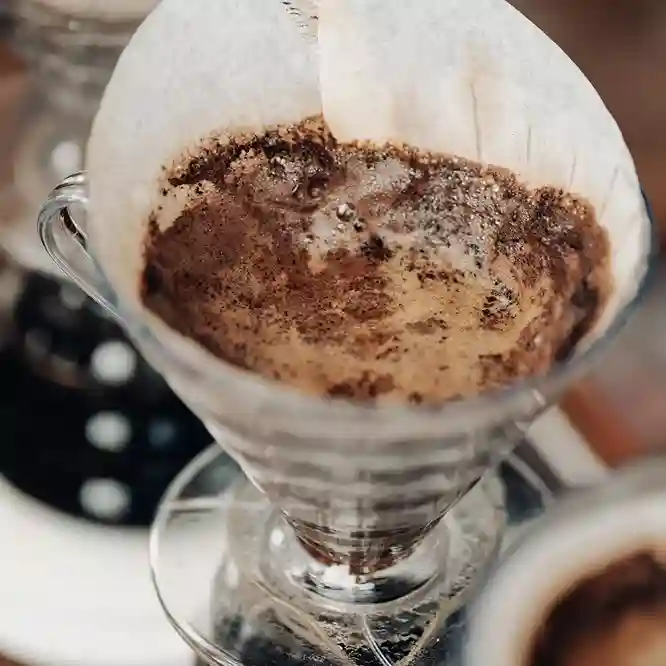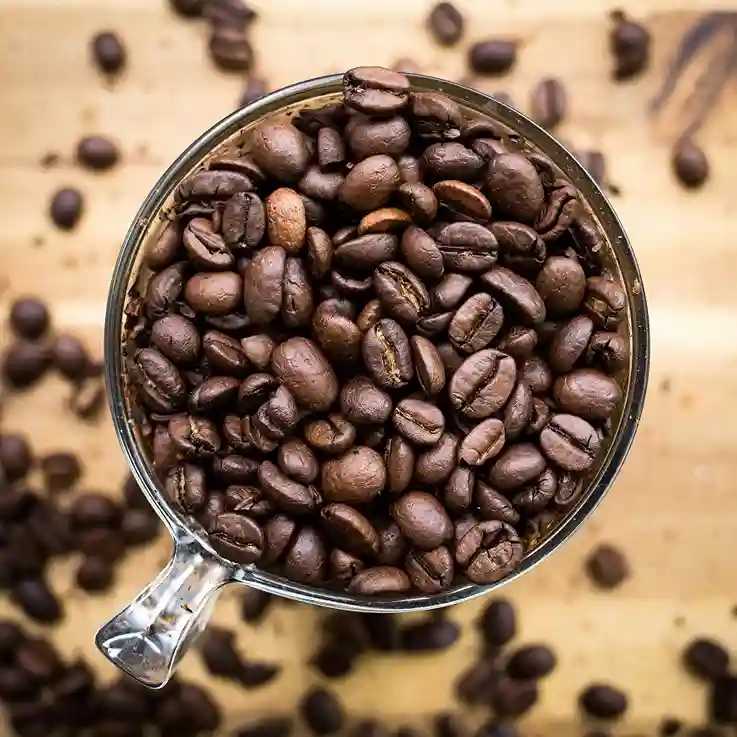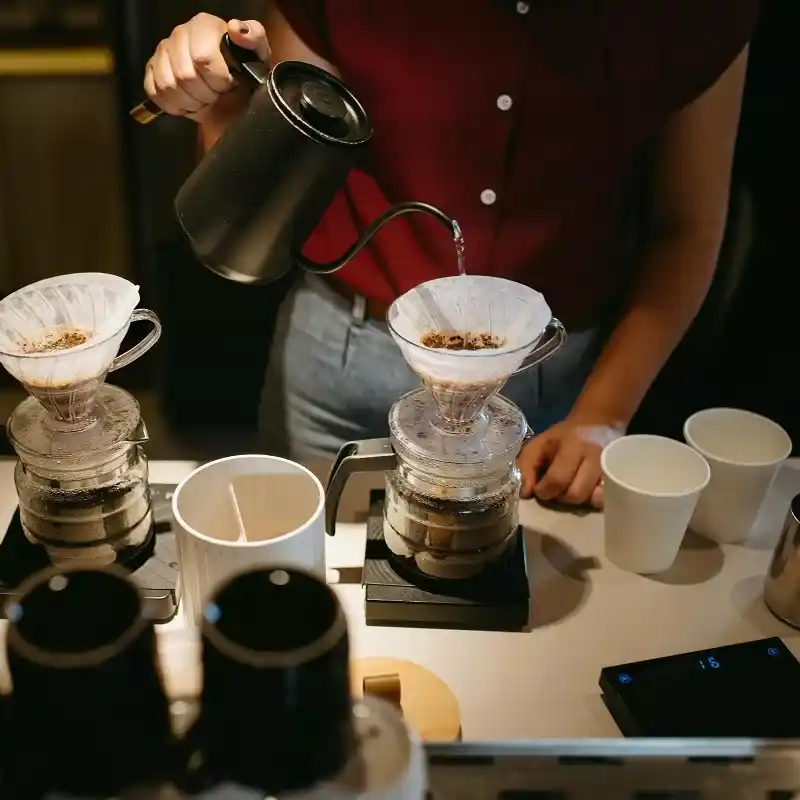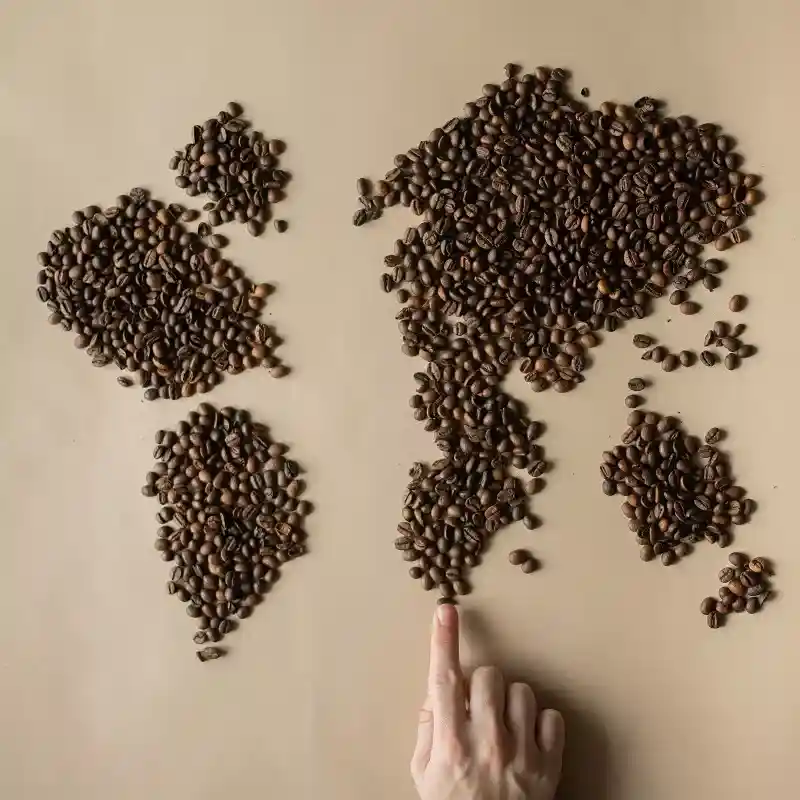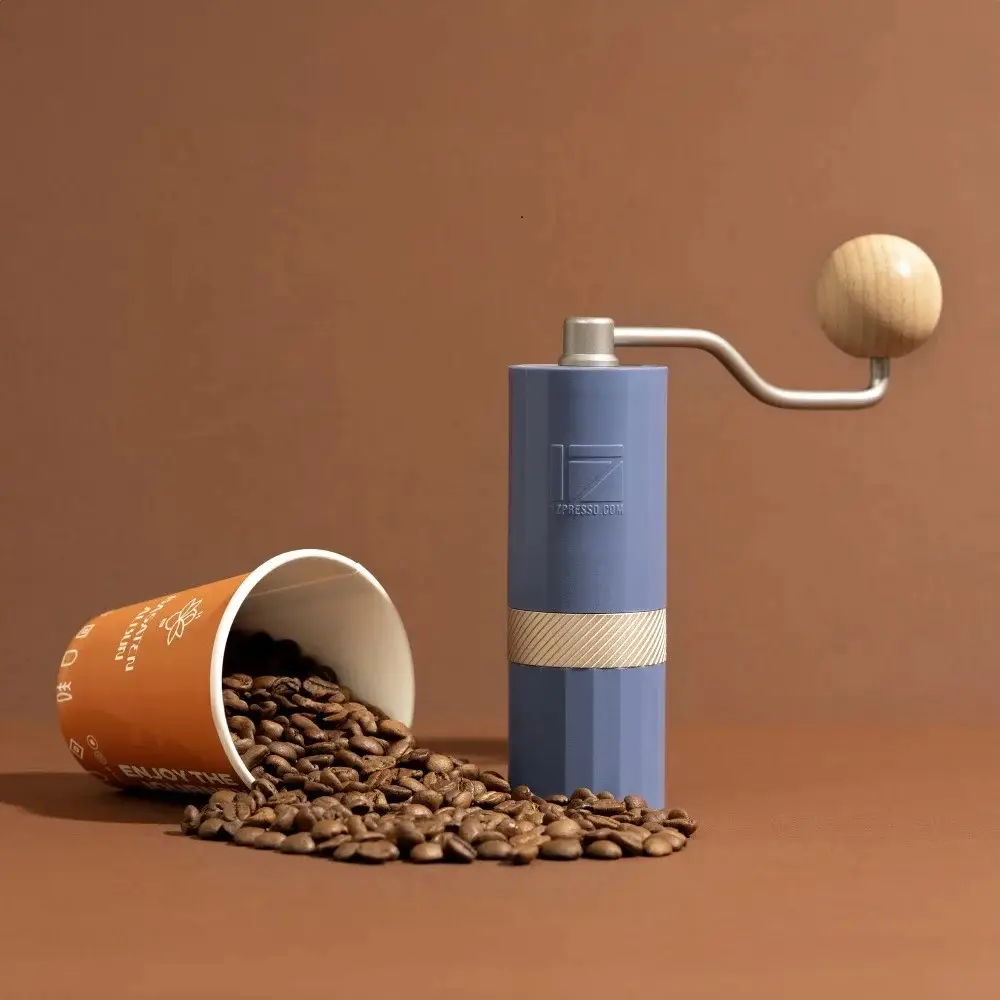What are coffee filters and why do you need them?
Coffee filters play an important role in the flavor, purity and texture of the drink. During filtration, small grind particles and some coffee oils are retained. Paper filters are used to make coffee with a bright acidity, while metal filters provide a richer, fuller flavor.
Filtration methods such as V60 or Chemex allow for more precise control of the extraction, unlike conventional brewing in a cup or a Turk, where the grounds remain and continue to influence the taste of the drink, which often results in bitterness.
A filter is a simple tool that can have a significant impact on the quality of coffee brewing.
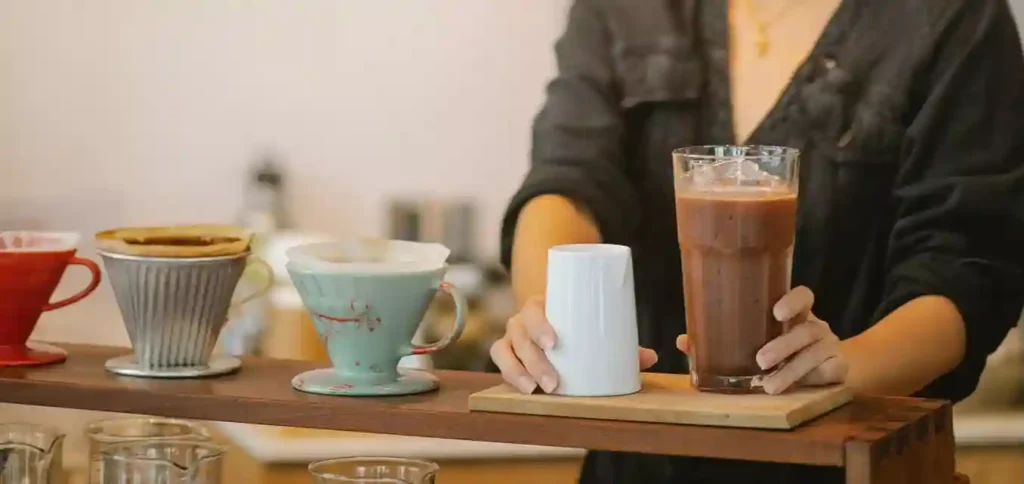
Types by material of manufacture
The filter material directly affects the purity, texture, and taste of the drink.
Paper filters
This is the most common option for manual brewing methods. Paper preparation filters ensure a clean cup with a minimum of fine particles and oils. The density of the paper affects the brewing speed. The denser the filter, the more balanced the extraction. They can be conical, flat, or corrugated. The shape also affects the speed of water flow. There are many sizes available, it is important to choose a filter that fits your appliance.
Metal filters
They are made of stainless steel, sometimes with a gold coating. They are reusable, durable, and do not need to be replaced. They allow more oils to pass through. These are. the filter is used for cooking full-bodied, rich coffee. It is important to clean it regularly to avoid sediment build-up.
Fabric filters
They are made of cotton, linen, or hemp and can be reused. It is important to remember to rinse after each use and store them properly.
Nylon filters
This is a synthetic alternative to fabric or metal. They are heat and wear resistant, easy to clean. They are well suited for traveling and long-term use.
Ceramic filters
Made of porous material, they provide slow filtration and retain heat well, so they maintain a stable brewing temperature. Suitable for experimenting with the flavor profile.
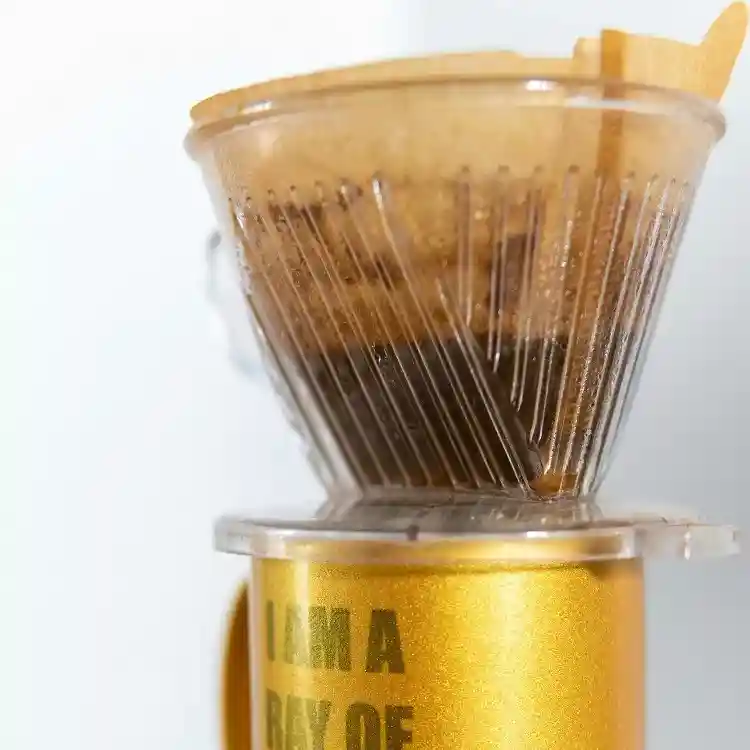
Variable and built-in filters
Replacements(paper, cloth, nylon) are inserted into the holder and discarded or washed after use. They are convenient, often interchangeable, and allow you to experiment. Compatibility depends on the model of the coffee maker: some work only with a certain type of filter.
The main advantage is ease of maintenance and control over the quality of filtration. The disadvantage is the constant cost or the need for regular cleaning.
Built-in ones are usually metal or plastic with a mesh. They are part of the coffee maker’s construction.
The main advantage is reusability and savings.
At the same time, they allow more fine particles to pass through, which affects the purity of the drink.
Criteria for choosing the perfect coffee filter
The choice of filter depends on several factors that you should consider before buying.
The type of coffee maker and brewing method are the first things to consider.
Cone paper filters are suitable for the V60, special thick filters for Chemex, and metal or fabric filters for the French press or air press.
Taste preferences also matter. If you prefer a light, clear flavor, choose paper filters. Use metal or fabric filters for coffees with a dense body.
The frequency of use and your budget will determine whether you should buy disposable or reusable options. For daily brewing, reusable filters are more practical.
This is an eco-friendly product: paper ones can be recycled, and fabric or metal ones can be washed and reused.
Rating of the top 10 best coffee filters in 2025
- Paper 8-12-Cup Basket Coffee Filters (produced by various brands) are the most popular in 2025. Advantages: stable extraction, environmental friendliness, convenience.
- Melitta #4 Cone Coffee Filters, Unbleached – classic paper cone filters, unbleached, durable, with a double seam.
- If You Care #4 Unbleached Paper Filters are eco-friendly, natural, and durable.
- Amazon Basics 8-12 Cup Basket Filters are a budget solution, 100% plant fibers, stable shape and sediment-free filtration.
- Hario V60 Paper Filter Size 02 – ideal for V60, Japanese quality, retains coffee beans well
- Irekamons #4 Cone Unbleached Paper Filters – thicker, provide slow extraction, many positive reviews due to the taste of the drink and environmental friendliness
- Barista Warrior Metal Cone Filter – metal cone, two-layer mesh filter, rich flavor with minimal sediment
- Cuisinart GTF Gold Tone Coffee Filter is a reliable metal filter for 10-12 cups. Advantages: easy cleaning, saves on paper
- The BeanNest Stainless-Steel Cone Dripper is a conical dripper that doubles as a filter. Lightweight, ideal for traveling and camping.
- Chemex Bonded Paper Filters (Square) – paper filters for Chemex: dense, good filtration, retains heat and aroma.
Comparative table
| № | Model. | Material. | Filter type | Environmental friendliness | Price range |
|---|---|---|---|---|---|
| 1 | Basket Coffee Filters | Paper | Basket | High | $$ |
| 2 | Melitta #4 Cone | Unbleached paper | Cone | Medium-high | $–$$ |
| 3 | If You Care #4 | Unbleached paper | Cone | Very high | $ |
| 4 | Amazon Basics Basket | Paper | Basket | Biodegradable | $ |
| 5 | Hario V60 #02 | Paper | Cone | Medium | $–$$ |
| 6 | Irekamons #4 Cone | Unbleached paper | Cone | High | $ |
| 7 | Barista Warrior | Metal | Metal cone | Reusable | $$–$$$ |
| 8 | Cuisinart Gold Tone | Metal | Metal basket | Reusable | $$ |
| 9 | BeanNest Stainless-Steel | Metal | Cone + dripper | Reusable | $$–$$$ |
| 10 | Chemex Bonded Paper | Paper | Square paper | Biodegradable | $$ |
Most models (Melitta, Hario, If You Care, Amazon Basics) are easy to find on Ukrainian and international marketplaces. The average price for 100 pieces of paper filters in Ukraine is about UAH 150-200. Metal ones in Ukraine cost from 230 UAH for a simple model to 1,000-2,000 UAH for premium versions.
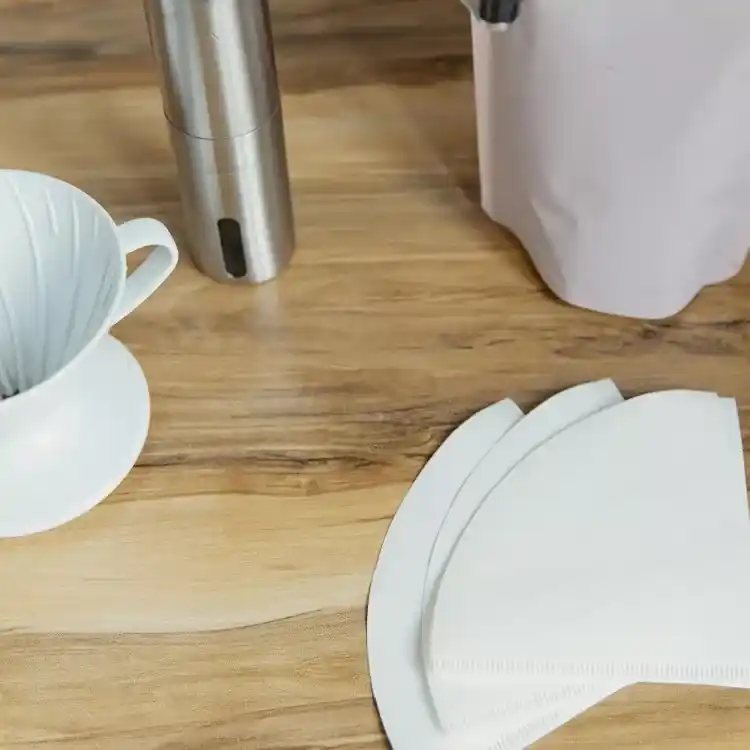
Expert advice
To make coffee with a balanced flavor, it is important not only to have a high-quality filter, but also to use it correctly.
Before you start cooking, it is advisable to rinse the paper filter with hot water. This removes the paper taste and warms up the funnel or coffee pot. It is important to put the filter in smoothly, without wrinkles, as this affects the evenness of the water flow.
For paper filters, a medium grind is best. For metal or cloth filters, we recommend using a slightly coarser grind, as these filters do not retain fine dust like paper. Grinding too fine can cause over-extraction and bitterness.
When making coffee with filters, the main mistakes are: uneven wetting of the coffee, improper grinding, and an old or damaged filter. Do not overload the filter. It is important to follow the recommended dosage for your brewing method.
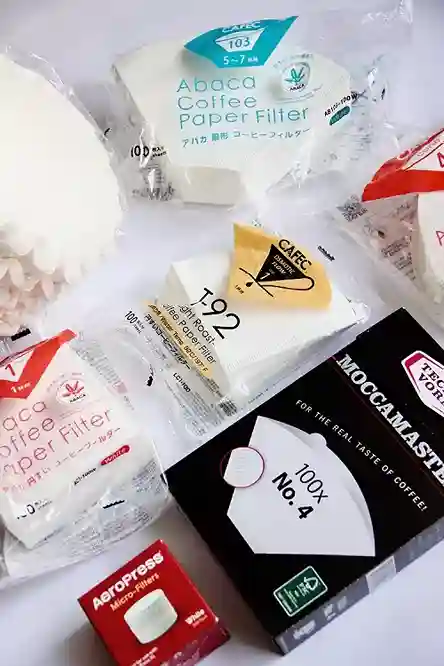
Care and maintenance of the filters
Proper care of the filters extends their service life and keeps the coffee taste consistent.
Metal ones should be rinsed after each use and periodically cleaned of coffee oils. This can be done with baking soda or citric acid. They can last for years if they are not deformed or rusted.
Fabric ones should be rinsed well and stored in the refrigerator when wet. They last for 1-2 months of active use.
Nylon ones are easy to clean under running water. They usually remain usable for several months.
Paper ones are disposable, they are simply thrown away after brewing.
A dirty or worn filter can cause off-flavors, bitterness, or reduce extraction quality. If stored improperly, it can promote the growth of bacteria and mold.
Conclusions and recommendations
Coffee filters differ in material, shape, and effect on sensory characteristics.
Paper cups produce a clean cup without sediment, metal cups produce a rich cup, and cloth cups produce a moderately clean and rich cup. The choice depends on the method of preparation, personal preferences, budget, and environmental awareness.
In the future, we can expect improvements in reusable filters, new eco-friendly materials and filtration solutions that combine a clean drink with minimal environmental impact.
Until then, buy filters that are compatible with your appliance, choose the best one, and enjoy your coffee.
